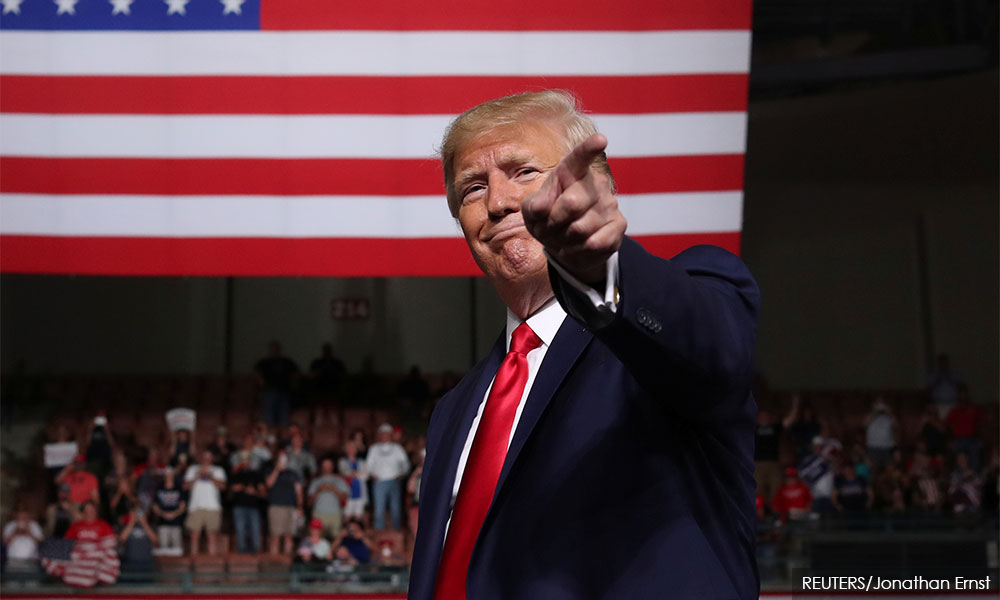
Prime Minister Dr Mahathir Mohamad will head to New York later this month for the United Nations General Assembly, where the Malaysian delegation is also expected to hold various meetings on the side to advance the country's interest.
A sticking point between Malaysia and the US has been Washington's complaint about the trade deficit with Malaysia - or simply that the US was buying substantially more goods from Malaysia than Malaysia is from the US.
It is not yet clear if the Malaysian delegation will be meeting US officials about trade on this UN trip, but if there is, the delegation will hope for a better treatment compared with Malaysia's trade mission to the US in April, which left a bitter taste.
International Trade and Industry Minister Darell Leiking's six-day trade mission to the US was touted as a success, with RM6.6 billion in potential investments from US investors, but a low point was the meeting with US Trade Representative Robert Lighthizer.
At the conclusion of the meeting, the Malaysian delegation found Lighthizer to be "unbelievably rude, offensive and without civility", people familiar with the matter told Malaysiakini.
They added that the Malaysian delegation being 15 minutes late due to unavoidable circumstances, also did not help.
The source said while Lighthizer complimented the new government for putting the brakes on deals with China that were suspected to be tainted with corruption, he was insistent the deals should not continue.

Lighthizer was said to be dismissive of Leiking's (photo) explanation that terminating the contracts altogether would have serious financial implications for Malaysia and that the renegotiations had yielded some concessions for the country.
While Malaysia has terminated pipelines projects granted to Chinese companies, it restarted the Beijing-funded East Coast Rail Link project around two weeks after the US meeting, after securing RM21.5 billion in cost savings.
The source said from there on, the meeting went downhill as the Lighthizer brashly questioned Malaysia on several issues, including Bank Negara Malaysia's rule disallowing foreign companies to own more than a 70 percent stake in insurance companies in Malaysia, thus requiring full foreign owners to divest 30 percent of their stake.
MySalam Scheme
The new government has provided the insurance companies with an alternative, requiring them to contribute the equivalent value of the 30 percent stake into a health fund to provide free life insurance for low-income earners, known in Malaysia as the MySalam Scheme.
This was made known to Lighthizer, who dismissed the alternative as a "shakedown".
The source said Lighthizer then sarcastically and repeatedly questioned the Malaysian delegation if they understood the meaning of the word "shakedown" and threatened retaliation.
They said Lighthizer also raised the trade deficit with Malaysia but was uninterested when Malaysia's justification was explained to him.
A 2017 Dewan Rakyat written reply by the government disputed the US claim of a US$25 billion trade deficit with Malaysia, with Putrajaya putting it closer to US$5 billion.
The government had said the inflated data was due to the US accounting for trade data through third parties, such as exports to the US through Singapore being counted as imports from Malaysia instead of Singapore.
Lighthizer, seen as a trade hawk within US President Donald Trump's inner circle, has also been described as the man spearheading the trade war against China, which has since escalated with new tariffs at the beginning of this month.
The Financial Times, in an opinion piece, said amid the trade war with China, the Trump administration has also targeted Vietnam and India and "Malaysia could be next".
Mahathir has repeatedly criticised the Trump administration's belligerent trade approach that threatens to tip the global economy into recession.
The Malaysian prime minister has also been less than diplomatic about Trump, stating that it would be hard to work with someone who kept changing his mind.
The US Department of State has been on a publicity push to reassert US waning influence in East Asia and the Pacific in the face of a rising China in the region.
However, the Trump administration's economic manoeuvres are likely to push countries in the region into the arms of Beijing. - Mkini


No comments:
Post a Comment
Note: Only a member of this blog may post a comment.